Related Research Articles
Innocence Project, Inc. is a 501(c)(3) nonprofit legal organization that is committed to exonerating individuals who have been wrongly convicted, through the use of DNA testing and working to reform the criminal justice system to prevent future injustice. The group cites various studies estimating that in the United States between 1% and 10% of all prisoners are innocent. The Innocence Project was founded in 1992 by Barry Scheck and Peter Neufeld who gained national attention in the mid-1990s as part of the "Dream Team" of lawyers who formed part of the defense in the O. J. Simpson murder case.
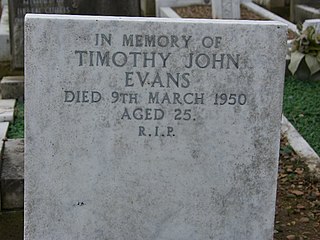
A miscarriage of justice occurs when an unfair outcome occurs in a criminal or civil proceeding, such as the conviction and punishment of a person for a crime they did not commit. Miscarriages are also known as wrongful convictions. Innocent people have sometimes ended up in prison for years before their conviction has eventually been overturned. They may be exonerated if new evidence comes to light or it is determined that the police or prosecutor committed some kind of misconduct at the original trial. In some jurisdictions this leads to the payment of compensation.
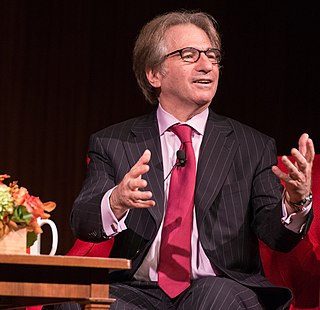
Barry Charles Scheck is an American attorney and legal scholar. He received national media attention while serving on O. J. Simpson's defense team, collectively dubbed the "Dream Team", helping to win an acquittal in the highly publicized murder case. Scheck is the director of the Innocence Project and a professor at Yeshiva University's Benjamin N. Cardozo School of Law in New York City.
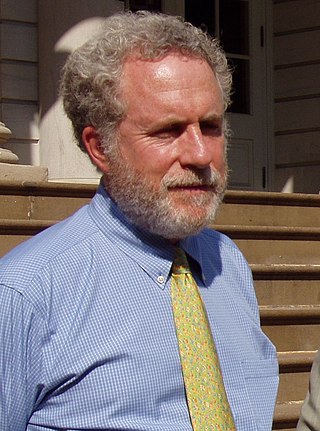
Peter J. Neufeld is an American attorney, co-founder, with Barry Scheck of the Innocence Project, and a founding partner in the civil rights law firm Neufeld Scheck & Brustin. Starting from his earliest years as an attorney representing clients at New York's Legal Aid Society, and teaching trial advocacy at Fordham School of Law from 1988 to 1991, he has focused on civil rights and the intersection of science and criminal justice.
Kirk Noble Bloodsworth is a former Maryland waterman and the first American sentenced to death to be exonerated post-conviction by DNA testing.
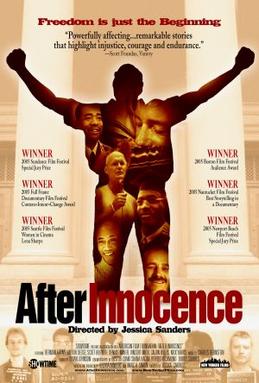
After Innocence is a 2005 American documentary film about men who were exonerated from death row by DNA evidence. Directed by Jessica Sanders, the film took the Special Jury Prize at the 2005 Sundance Film Festival.
Exoneration occurs when the conviction for a crime is reversed, either through demonstration of innocence, a flaw in the conviction, or otherwise. Attempts to exonerate convicts are particularly controversial in death penalty cases, especially where new evidence is put forth after the execution has taken place. The transitive verb, "to exonerate" can also mean to informally absolve one from blame.
The Georgia Innocence Project is a non-profit corporation based in Atlanta, Georgia, United States. Its mission "is to free the wrongly prosecuted through DNA testing, to advance practices that minimize the chances that others suffer the same fate, to educate the public that wrongful convictions are not rare or isolated events, and to help the exonerated rebuild their lives."
Douglas Echols was convicted in a 1986 rape case. In 2002, his charges were finally cleared through DNA testing after he served over five years in prison. In 2005, a resolution was introduced in the Georgia Assembly by Representatives Tom Bordeaux and Chuck Sims requesting $1.6 million as compensation for his incarceration; however, the resolution was not approved.
The Innocence Project is a television drama series created by BBC Northern Ireland and first broadcast on BBC One on 9 November 2006. The series follows the work of Professor Jon Ford, who sets up The Innocence Project, peopled entirely by a hand-picked group of law students. They take on cases pro bono that no one else will handle, or those that have been forgotten or given up on, working for clients that would otherwise have no hope, and who have possibly been wrongly convicted. The series is based on a British version of the Innocence Project, a non-profit legal clinic in the United States.
This is a list of notable overturned convictions in the United States.
The Innocence Network is an affiliation of organizations dedicated to providing pro bono legal and investigative services to individuals seeking to prove innocence of crimes for which they have been convicted and working to redress the causes of wrongful convictions. Most organizations involved are in the United States, covering all 50 states; however, the network includes organizations in Canada, Australia, and the UK.
Cornelius Dupree Jr. is an American who was declared innocent of a 1980 conviction for aggravated robbery, which was alleged to have been committed during a rape in 1979. He was paroled in July 2010 after serving 30 years of a 75-year prison sentence in Texas. Prosecutors cleared him of the crime after a test of his DNA profile did not match traces of semen evidence from the case. Dupree, who was represented by the Innocence Project, spent more time in prison in Texas than any other inmate who was eventually exonerated by DNA evidence.
The National Registry of Exonerations is a project of the University of Michigan Law School, Michigan State University College of Law and the University of California Irvine Newkirk Center for Science and Society. The Registry was co-founded in 2012 with the Center on Wrongful Convictions at Northwestern University School of Law to provide detailed information about known exonerations in the United States since 1989. As of February 6, 2020, the Registry has 2,551 known exonerations in the United States since 1989. The National Registry does not include more than 1,800 defendants cleared in 15 large-scale police scandals that came to light between 1989 and March 7, 2017, in which officers systematically framed innocent defendants.
Thomas Haynesworth is a resident of Richmond, Virginia, who served 27 years in state prison as a result of four wrongful convictions for crimes for which he was exonerated in 2011.
The Beatrice Six are Joseph White, Thomas Winslow, Ada JoAnn Taylor, Debra Shelden, James Dean and Kathy Gonzalez, who were falsely found guilty in 1989 of the 1985 rape and murder of Helen Wilson in Beatrice, Nebraska and served prison terms before being exonerated in 2009.
The Illinois Innocence Project, a member of the national Innocence Project network, is a non-profit legal organization that works to exonerate wrongfully convicted people and reform the criminal justice system to prevent future injustice.
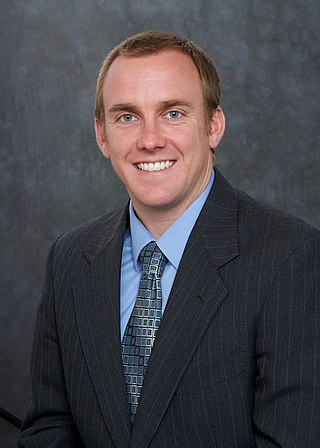
Michael "Mike" Semanchik is Managing Attorney at the California Innocence Project (CIP). As part of his work with CIP, he has been involved in many cases involving the exoneration of previously convicted prisoners, working closely with the organization's director, Justin Brooks, and also preparing petitions for many of CIP's clients. After working at CIP while still a law student at California Western School of Law, following graduation in 2010 he became an investigator and then a staff attorney there.

Bill Clutter is an American private investigator, wrongful conviction advocate, and author. He is the co-founder of the Illinois Innocence Project and founder of the national wrongful conviction organization Investigating Innocence. His work on the Donaldson v. Central Illinois Public Service Company case led him to write the book Coal Tar: How Corrupt Politics and Corporate Greed Are Killing America's Children, which is the story of an epidemic of neuroblastoma in Taylorville, IL caused by exposure to coal tar.
References
- ↑ "Alphabetical listing of all Innocence Network member organizations". The Innocence Network. Retrieved 26 March 2016.
- ↑ "Innocence Project". Innocence Project. Nebraska Innocence Project. Retrieved March 16, 2016.
- 1 2 Beck, Margery (February 21, 2014). "DNA testing ordered in 40-year-old Omaha rape case". Lincoln Journal Star. Retrieved March 16, 2016.
- 1 2 3 4 Pilger, Lori (October 1, 2015). "Nebraska Innocence Project to hire staff attorney". Lincoln Journal Star . Retrieved March 10, 2016.
- ↑ Hammel, Paul (15 October 2015). "Nebraska Innocence Project merges with regional group, plans to hire first paid legal director". Omaha.com. Retrieved 26 March 2016.
- ↑ Pilger, Lori (January 30, 2014). "Judge grants mistrial in Beatrice 6 case". Lincoln Journal Star . Retrieved March 15, 2016.
- 1 2 Kelly, Bill (May 8, 2015). "Beatrice 6 Damage Claim Case Returns to Federal Court". Nebraska Educational Telecommunications (NET) . Retrieved March 15, 2016.
- ↑ Duggan, Joe (January 5, 2016). "Nebraska lawmaker wants to standardize practices on police photo lineups". Omaha.com. Retrieved March 16, 2016.
- ↑ Zalman, Marvin; Carrano, Julia (2014). Wrongful Conviction and Criminal Justice Reform: Making Justice. New York, NY: Routledge. p. 322. ISBN 978-0-415-81463-8.